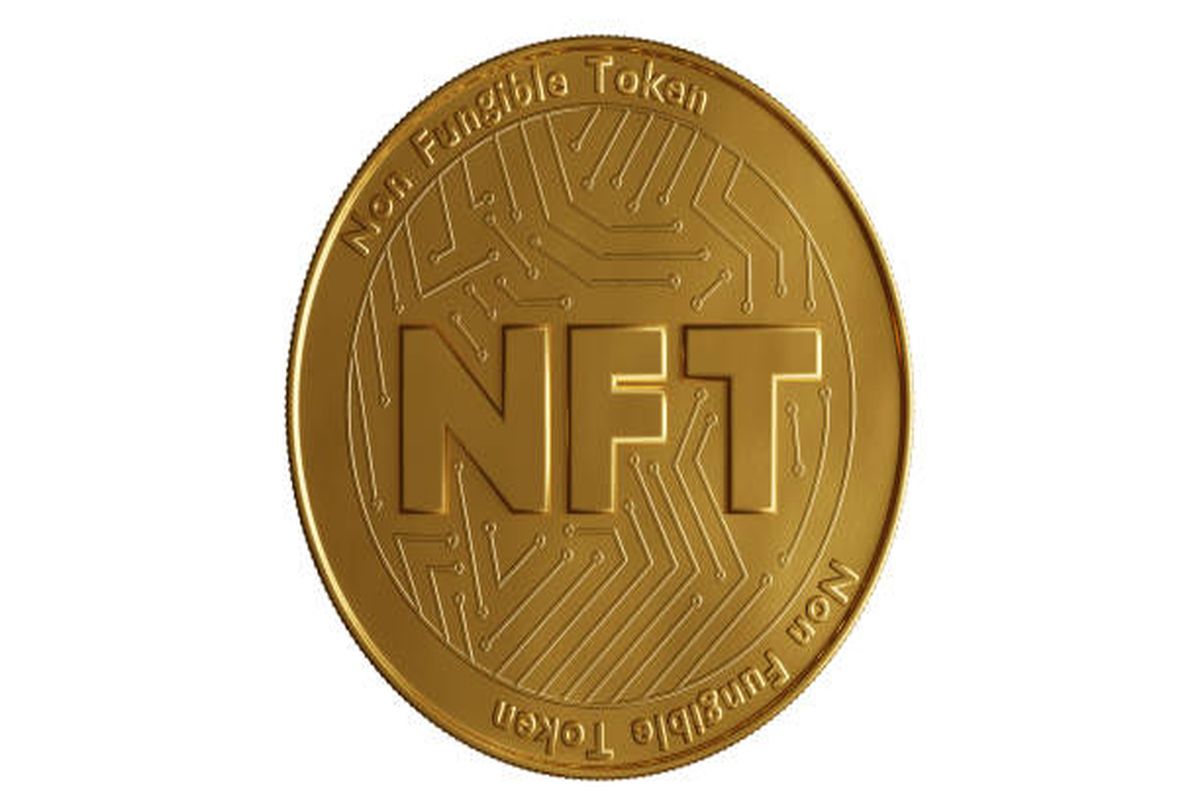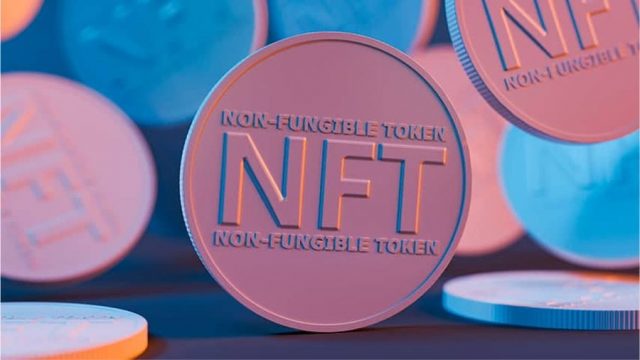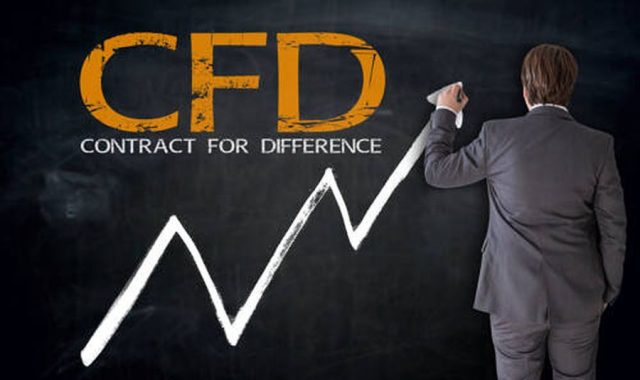Contract for Difference (CFDs) and NonFungible Tokens (NFTs) are two financial products that seem to have attracted massive attention in the digital arena recently. While CFDs are designed to allow traders to speculate on price changes without needing to own any of the underlying assets, NFTs are representatives of unique digital assets.
Although CFDs and NFTs might at first seem to have nothing in common, there is some room for integration between the two investment tools.
Empowering Digital Ownership With NFTs
Nonfungible tokens (NFTs) have helped revolutionize the digital ownership concept. They represent unique digital assets such as collectibles, artwork, and virtual real estate, as opposed to cryptos that are interchangeable and of the same worth. Nonfungible tokens are designed using blockchain technology and that gives them immutability and valid evidence of ownership.
In the art industry, NFTs have already gained popularity since they let creators tokenize their works and sell them directly to consumers. Also, NFTs have invaded other fields apart from art, including music, virtual reality, and gaming. In that context, NFTs have a high demand as digital assets due to their rarity and verifiable genuineness.
Trading Price Movements Using CFDs
Without having to hold the underlying asset, investors can easily speculate on price changes of different financial assets, including commodities, stocks, and cryptos, via contract for difference (CFD) trading. With the help of CFDs, traders now have a leveraged and versatile trading tool that lets them profit from rising and dropping markets.
Since brokers and traders enter into a contract to quickly exchange the difference in the asset’s price from when the contract is opened to when it is eventually closed, CFD trading eliminates the necessity for physical ownership. This kind of adaptability and the capacity to trade on leverage attract investors aiming to gain exposure to multiple markets on a budget.
Related:What is CFD Crypto Trading – An In-Depth Guide
The NFTs And CFDs Intersection
Although CFDs and NFTs operate in different sectors, there might be various areas of overlap. Such areas may result in new business opportunities within the digital economy.
NFTs as Underlying Assets for CFDs – without having to own the underlying assets, investors can gain exposure to the value and price swings of the unique digital assets using nonfungible tokens as underlying assets for CFD trading. For example, traders may use CFDs to bet on the price swings of a particular NFT piece, benefiting from any prospective decrease or increase in value.
NFTs Enhance CFD Trading Platforms
By including more trading assets, NFTs can enhance CFD trading platforms. The growth may attract a new group of traders eager to exploit the special opportunities offered by NFTs. Nonfungible tokens may also function as collateral or guarantees for CFD trades, which may lower risk for brokers and traders.
Using NFTs For Tokenized Securities
Tokenized securities reflect ownership in conventional financial assets and they can benefit from NFTs’ special characteristics. Investors can trade portions of the assets by tokenizing securities as nonfungible tokens, guaranteeing massive participation and boosting liquidity. After that, by integrating tokenized securities into CFD trading, investors can easily speculate on price changes without needing to deal with the complications of traditional security ownership.
Nonfungible tokens as a Store of Value in CFD Trading: Nonfungible tokens are likely stores of value because of their verified scarcity and legitimacy. By incorporating a new level of risk management and diversification into CFD trading, traders may employ NFTs as collateral or as a hedge to protect their CFD bets.
Benefits And Shortcomings
Within the digital space, the integration of CFDs and NFTs offers several benefits, although there are also issues that need resolution:
Market Liquidity
The NFT market needs to have enough liquidity for NFTs to be readily integrated into CFD trading. Since NFT markets are in the early stages, liquidity for some assets might be limited. However, as the NFT industry grows, liquidity might get better, making nonfungible tokens better suited for integration into CFD trading platforms.
Regulatory Considerations
Regulatory infrastructures vary for CFDs and NFTs from one jurisdiction to the next. To safeguard investor safety, advance transparency, and avoid market manipulation, it is imperative to set up clear regulatory networks that regulate the trading and intersection of CFDs and NFTs.
Related:What Are Blue-Chip NFTs?
Risk Management
Since NFTs and CFDs are highly volatile, effective risk management strategies are important. To account for the expected price swings and market uncertainty connected to the products, platforms, and traders have to utilize efficient risk mitigation measures.
Technological Infrastructure
Creating a strong and expandable technological foundation is needed to incorporate NFTs into CFD trading platforms. To ensure a smooth user experience for traders, the infrastructure has to facilitate secure transfer, storage, and trading of NFTs.
Awareness And Education
These two factors are important to fully realize the potential collaboration between CFDs and NFTs. The unique traits of NFTs, including ownership rights, provenance, market dynamics, and the benefits and shortcomings of integrating them into CFD trading, have to be understood by traders.
CFD Trading On Tokenized Securities: Introducing The Power Of NFTs To Traders
CFD trading on tokenized securities, specifically nonfungible tokens, unleashes a world of possibilities for traders looking to explore the dynamic and quickly growing NFT market. Here are ways this kind of trading offers traders a distinct and exciting means of participating in the dynamic and evolving industry.
Increased Participation In The NFT Market
NFTs have disrupted the old notions of ownership, supporting the tokenization of distinct digital assets, including collectibles, artworks, and virtual real estate. CFD trading on NFT stocks provides traders with an avenue to the NFT market, letting them participate in the possible appreciation of the assets without having to own them directly.
The accessibility increases the scope of participation, which democratizes the NFT market for all traders irrespective of their experiences and financial capabilities.
Portfolio Diversification And Exposure to Distinct Assets
The NFT space features an array of digital assets that range from music and digital art to in-game items and virtual real estate. CFDs on NFT stocks enable traders to diversify their investment portfolios by gaining exposure to lots of distinct assets. Diversification assists in reducing risks linked with traditional asset classes and unlocks new opportunities for possible profits and growth.
Exploring The Benefits Of NFT Market Volatility
The NFT market is highly volatile, offering traders great opportunities for profit. CFD trading lets traders speculate on the price movements of NFT stocks without having to own the underlying assets. Whether the market is recording bullish trends, bearish reversals, or abrupt price fluctuations, traders can leverage CFDs to benefit from the volatility and possible profits from downward and upward price movements.
Flexible Trading Strategies
Experienced traders can apply their expertise to CFD trading NFT-related stocks. Chart patterns, technical analysis, and trading indicators can be used to analyze NFT stock price charts and identity trends, enabling them to execute informed trading decisions.
Also, traders can use strategies like breakout trading, trend-following, and mean reversion to navigate the market efficiently. The flexibility that is offered by CFD trading lets traders adapt their strategies to changing market conditions and capitalize on profitable opportunities.
Related:Editorial: Why we are Minting Non-Fungible Tokens (NFTs) for E-Crypto News
Market Liquidity And Accessibility
CFD trading enables traders to exit and enter positions quickly, irrespective of the availability or liquidity of the underlying nonfungible tokens.
Position Control And Risk Management
CFD trading on NFT-related securities offers traders an assortment of risk management tools that help in protecting their capital. With many features like take-profit and stop-loss orders, traders define their risk tolerance levels and automatically exit trades when the pre-set price levels are attained.
Furthermore, the ability to trade with leverage offers traders massive exposure to NFT stocks’ price movements while maintaining full control over their positions, enabling efficient risk management.
Conclusion
The integration of CFDs and NFTs in the digital space creates many interesting opportunities. NFTs help promote digital ownership and provide unique assets, while CFDs offer adaptable trading tools for easy speculation on all price changes. The possible integration of these tools can help open up many new opportunities.
The growth of the digital finance sector is supported by the integration of NFTs as the underlying assets for CFD trading, the upgrade of CFD trading platforms using NFTs, the use of NFTs as a store of value or collateral in CFD trading, and the tokenization of securities as NFTs.
But, to efficiently exploit the potential of this integration, issues like regulatory concerns, market liquidity, technology infrastructure, education, and risk management have to be resolved.
The integration of CFDs and NFTs creates a new investment market as the digital economy evolves. Users need to find advanced ways of capitalizing on the benefits of CFDs and NFTs which will help influence the future of digital finance. It is always advisable to weigh the opportunities and obstacles that may come up to find the best strategy for benefiting from the new market.










